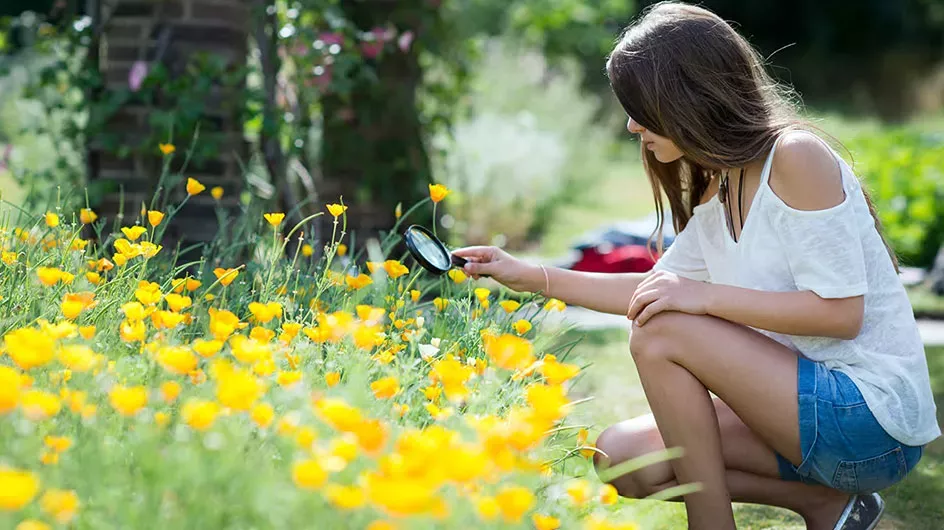KS4 Biology: Nutrient cycles and decomposition
How are carbon and water cycled through our natural systems and what can affect this process?

Level
Duration
Allocated space
Overview
Carbon and water are essential for the survival, growth and reproduction of living organisms. How are these elements cycled through our natural systems and what can affect this process? What are decomposers and why are they so important to life on earth?
Why do nutrient cycles rely on the decay of biological material? In this interactive session pupils use practical skills to explore key questions and delve into the complex world beneath our feet.
Please note, part of this session will take place in one of our classrooms.
Learning outcomes
Pupils will be able to:
- Describe how materials cycle through the abiotic and biotic components of an ecosystem.
- Understand the role of microorganisms as decomposers of biological material.
- Appreciate the importance of the water and carbon cycle to living organisms.
- Explain the factors which affect the rate of decomposition.
We will ensure learning outcomes are relevant to your pupils and will focus on your chose exam board.
Keywords:
Ecosystem, decomposition, nutrients, carbon, water, microorganisms, abiotic, biotic, temperature, oxygen, fertilisers
Curriculum links
AQA - Biology
4.7.1: Adaptations, interdependence and competition
4.7.2.2: Cycling of materials
4.7.2.3: Decomposition
Edexcel - Biology
Topic 9: Ecosystems and material cycles – 9.12, 9.13, 9.15, 9.18B
OCR A - Biology
Topic B4: Community level systems
- B4.1: Ecosystems – a, b, c, d
OCR B - Biology
Chapter B3: Living together – food and ecosystems
- B3.3: How are organisms in an ecosystem interdependent? 9, 10, 11, 13
BTEC - Biology
Topic 6: Plant structures and their functions – 6.1
Topic 9: Ecosystems and material cycles – 9.12, 9.13, 9.14, 9.15
Skills links:
- Plan experiments or devise procedures to make observations, produce or characterise a substance, test hypotheses, check data or explore phenomena.
- Apply a knowledge of a range of techniques, instruments, apparatus and materials to select those appropriate to the experiment.
- Carry out experiments appropriately, having due regard to the correct manipulation of apparatus, the accuracy of measurements and health and safety considerations.
- Make and record observations and measurements using a range of apparatus and methods.
- Explain everyday and technological applications of science
- Develop and learn to apply observational, practical, modelling, enquiry and problem solving skills, both in the laboratory, in the field and in other learning environments
